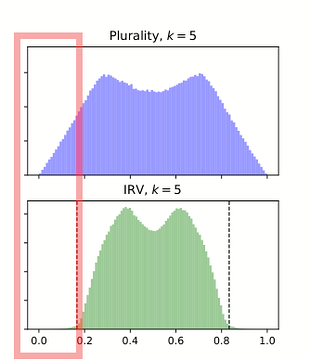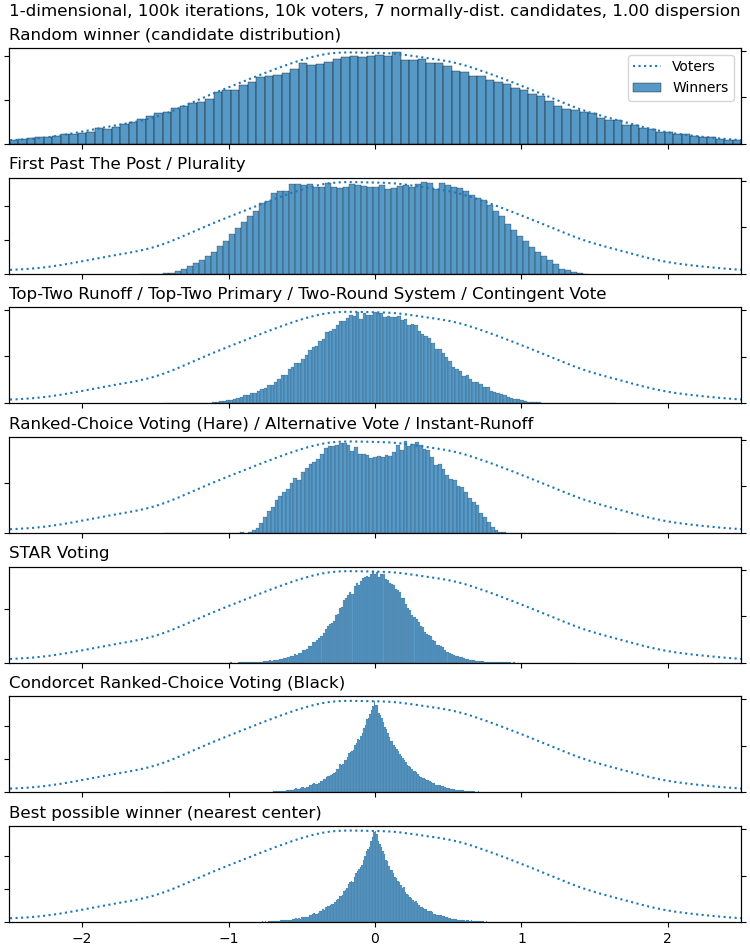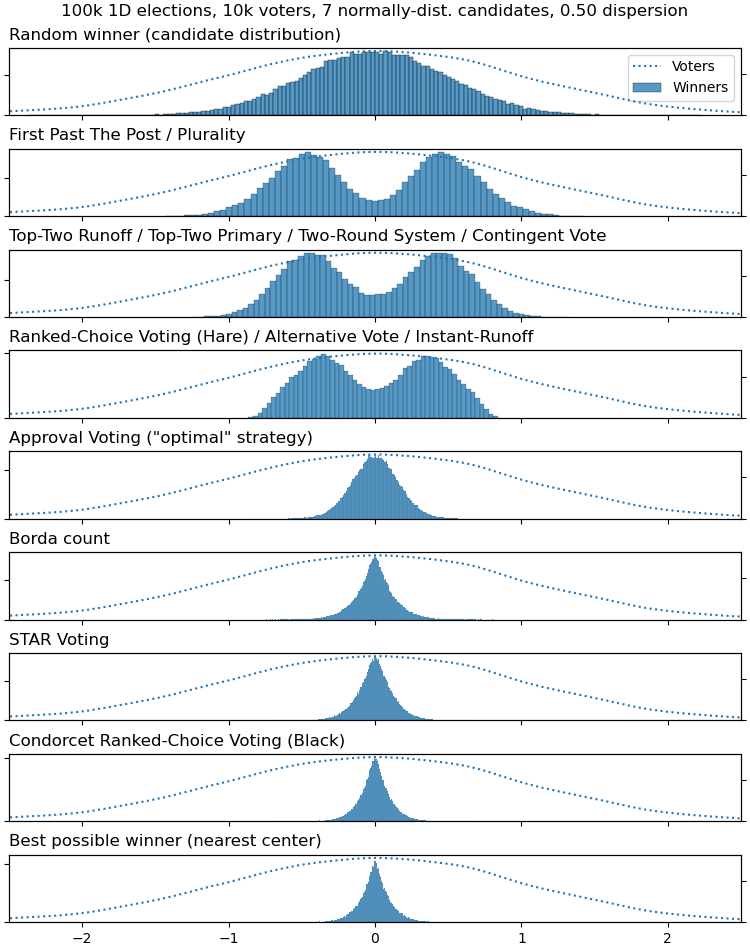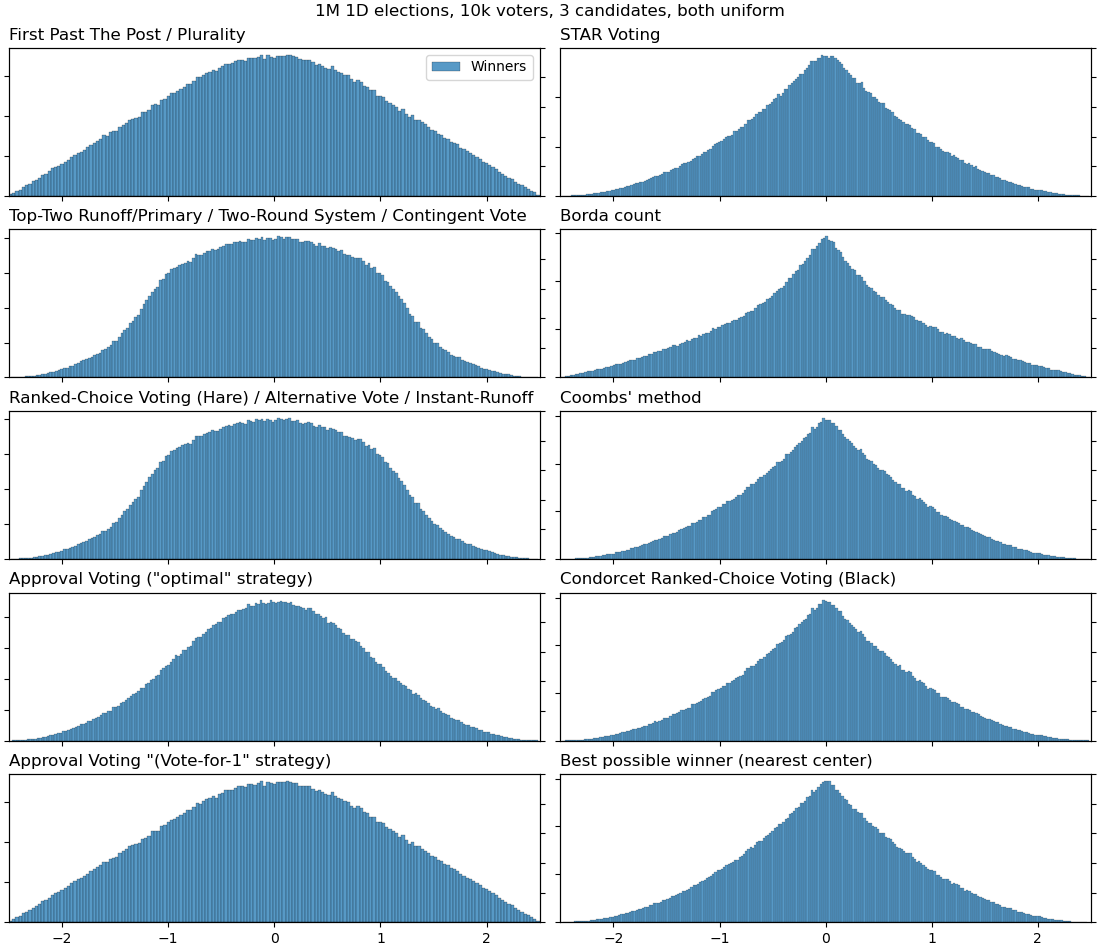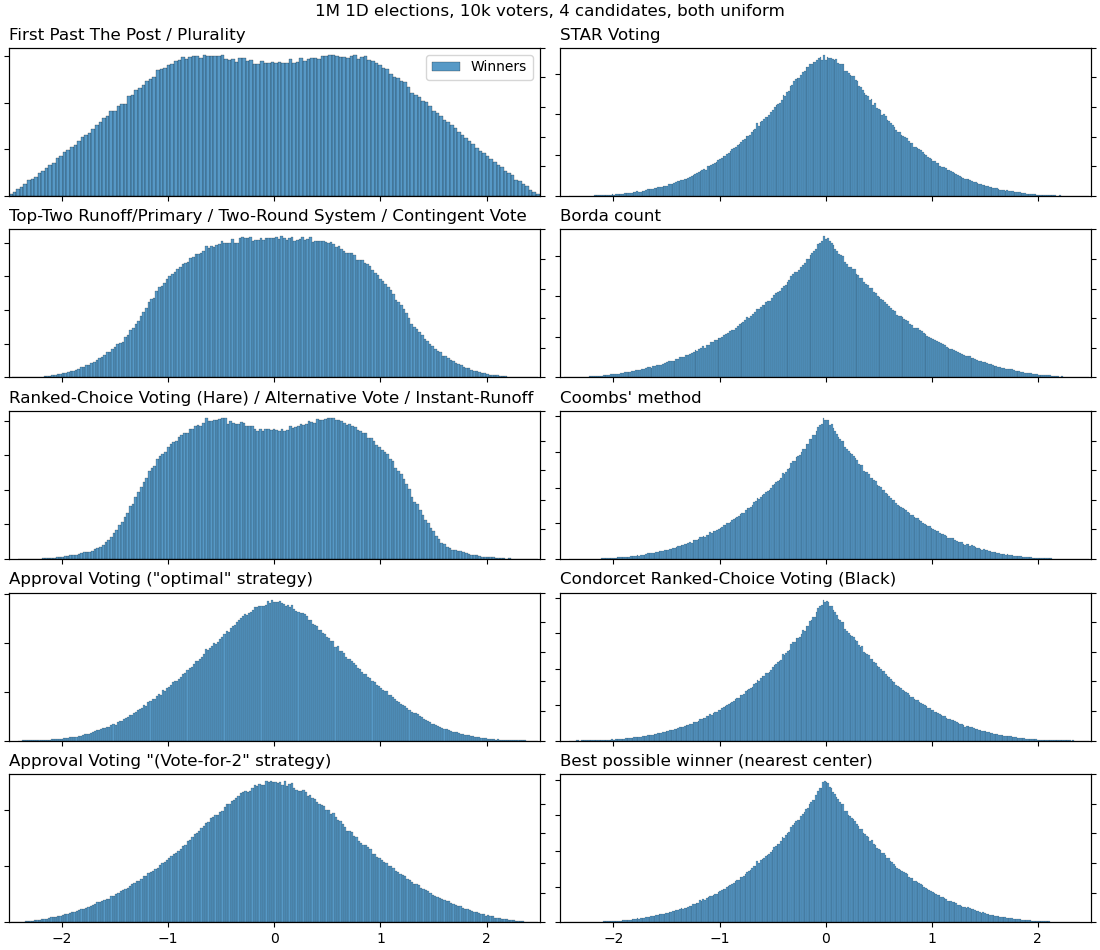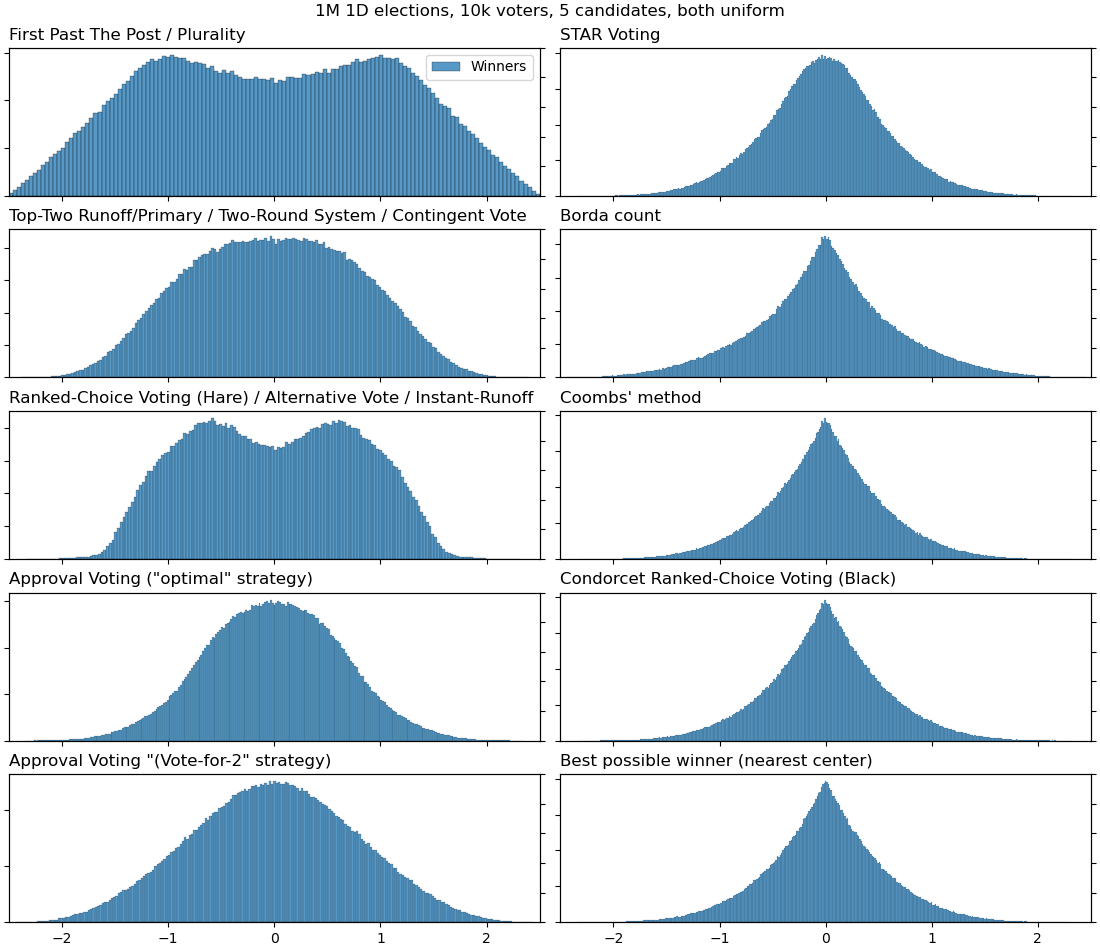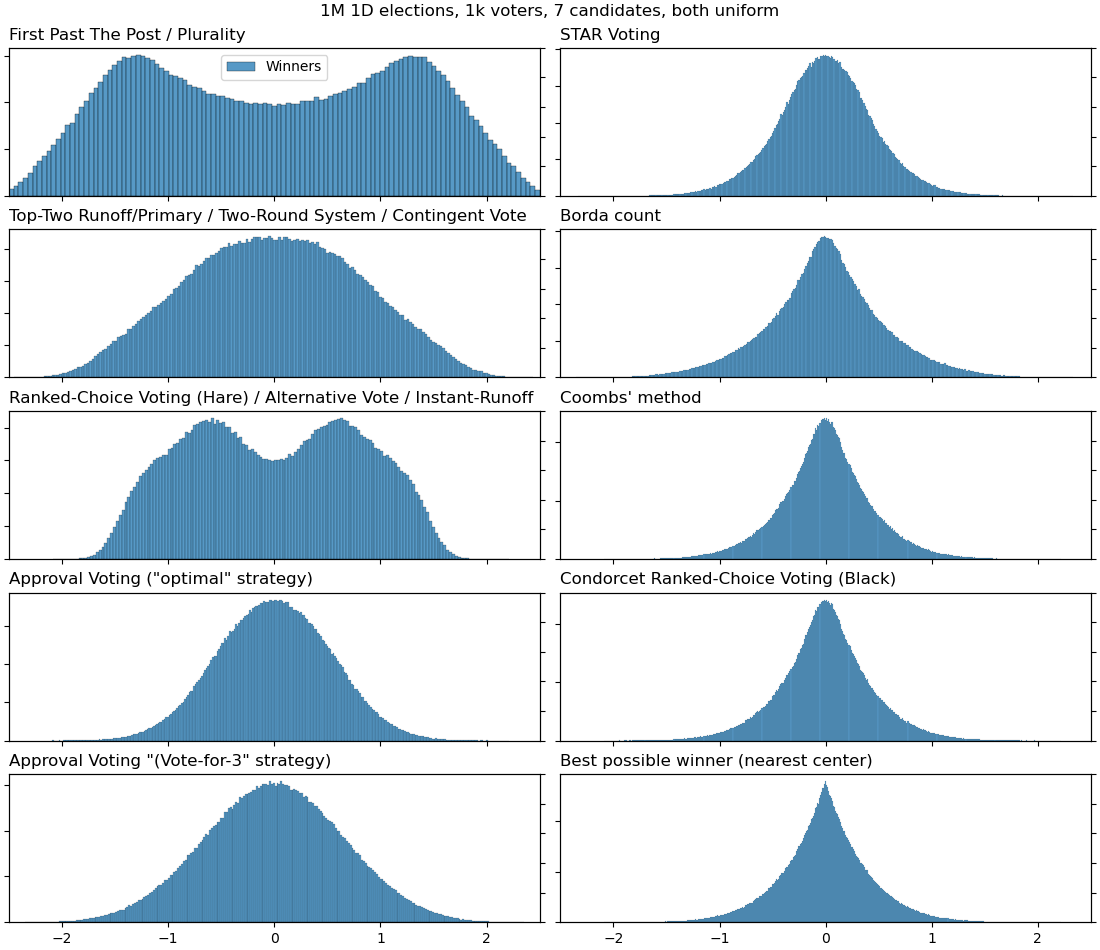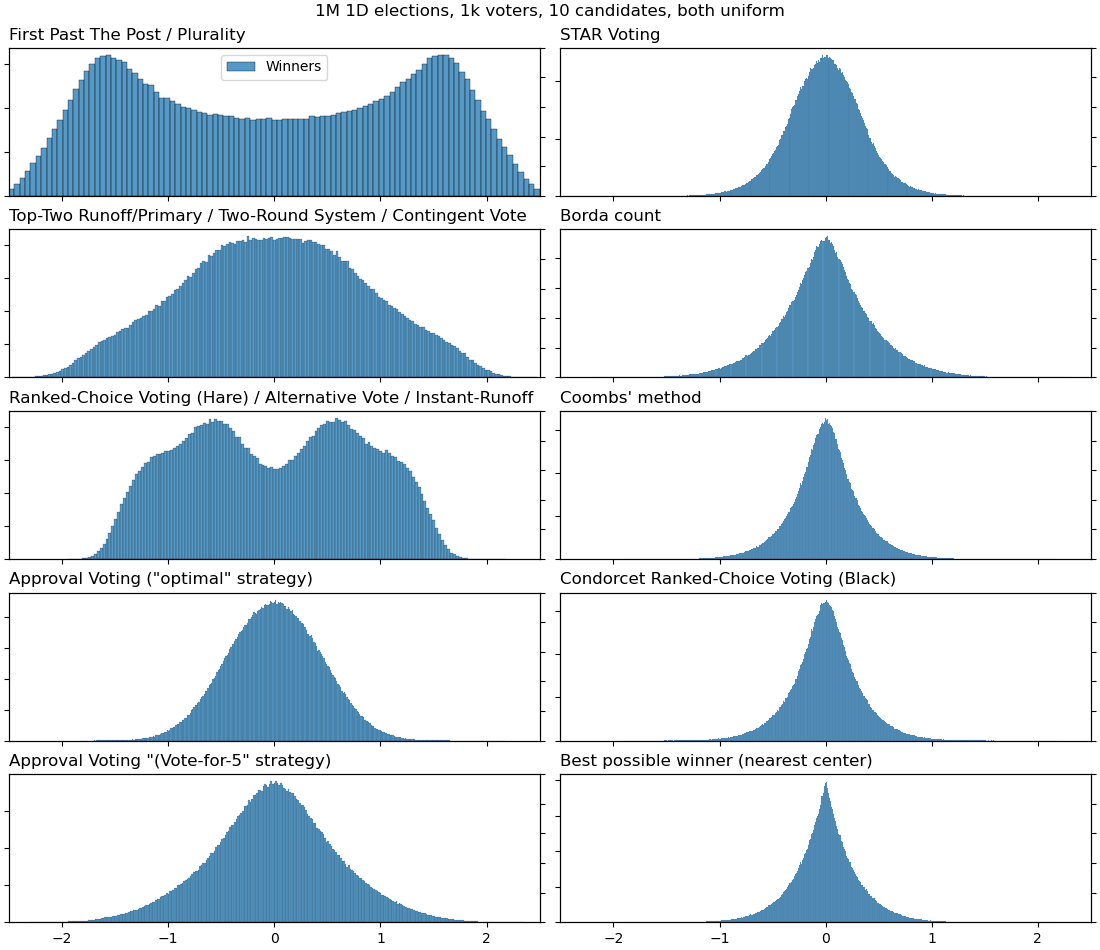Me:
What's a good word to fill in the blank?
"Our current voting system suffers from vote-splitting and the spoiler effect, which can cause the election of unrepresentative or extremist candidates that aren't actually the favorite of the voters. A better voting system would always elect the ______ candidate."
Meaning that in a field of candidates with fixed ideological positions, as the voters change their minds and move around the ideological space, the candidate selected by the voting system reflects their ideology as best as possible.
I sometimes say "moderate" or "centrist", by which I mean "relative to the voters' changing ideology", but those words by themselves give the impression that we want to elect a centrist on some absolute scale, even if the voters move away from that position, which is not what we want.
"Most-representative" is the most accurate term, but somewhat awkward. "Consensus candidate" also works pretty well, but is somewhat vague.
What other words would be better to fill in the blank?
ChatGPT:
A suitable word to fill in the blank could be "aligned" or "congruent":
"… A better voting system would always elect the aligned/congruent candidate."
These terms convey the idea that the elected candidate's ideology matches or closely corresponds to the voters' shifting ideologies, without implying an absolute centrist position.
Me:
Got anything else?
ChatGPT:
Certainly, another suitable word to fill in the blank could be "reflective":
"… A better voting system would always elect the reflective candidate."
This term suggests that the elected candidate's ideology mirrors or accurately represents the voters' evolving views, without implying a fixed centrist position.
Me:
I guess that's OK, but it's still going to require a bunch of explanation.
ChatGPT:
I understand your concern. Another option could be "responsive":
"… A better voting system would always elect the responsive candidate."
The term "responsive" conveys that the elected candidate is adaptable and able to adjust their stance in accordance with the shifting ideologies of the voters, without assuming a fixed centrist position. It still may require some explanation, but it should be more intuitive to understand.
Me:
But that's not what I want to convey. The candidate isn't changing their ideology to match the voters. The candidate that wins is changing to a different candidate who better matches the ideology of the voters.
ChatGPT:
Apologies for the confusion. In that case, you might consider using "best-matching" or "ideologically compatible":
"… A better voting system would always elect the best-matching/ideologically compatible candidate."
These terms emphasize that the winning candidate's ideology is the one that best aligns with the voters' views, rather than suggesting the candidate themselves is changing their stance.
Me:
Meh. The best word so far is still "consensus", I think, but that conflicts somewhat with the concept of "consensus decision-making", which is a bit different from a typical voting system.
ChatGPT:
I understand the concern with the term "consensus." In light of that, you might consider using "optimal representative":
"… A better voting system would always elect the optimal representative."
The term "optimal representative" suggests that the elected candidate is the one who best represents the voters' views at any given time, without implying that the candidate themselves is changing their stance or using "consensus" which might cause confusion with consensus decision-making.

